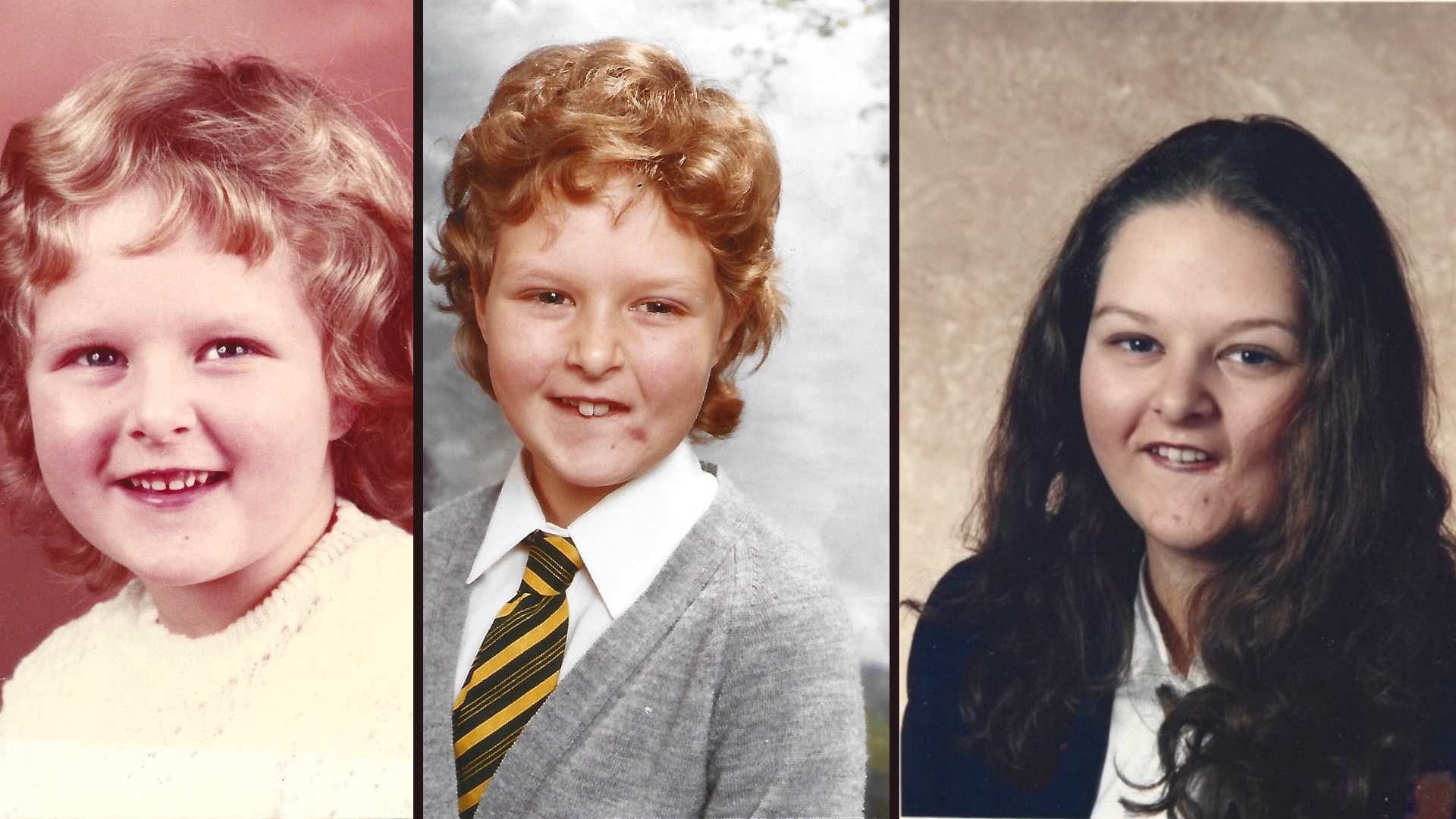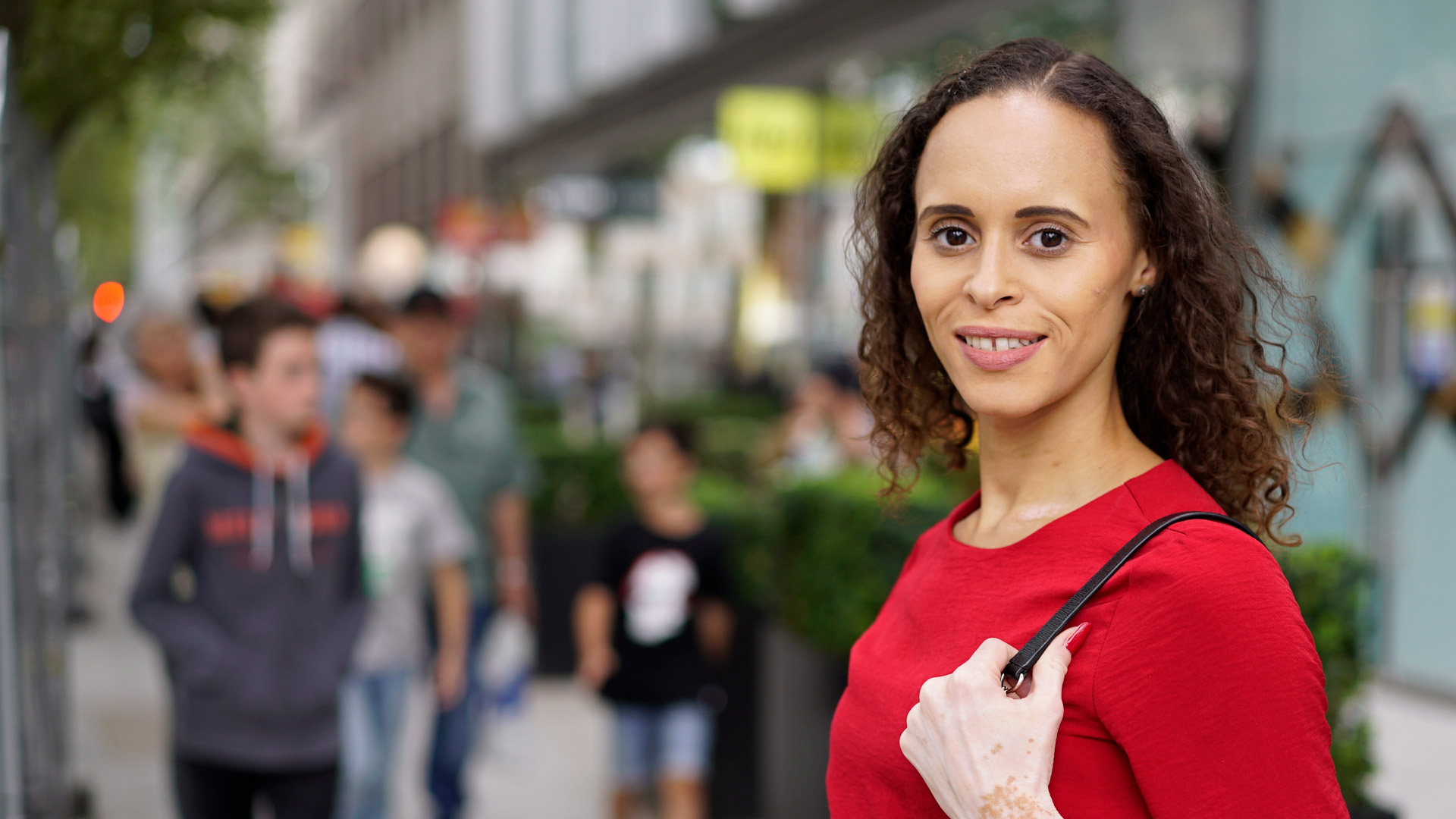Trigger warning: This story contains references to a dog attack.
I’m Lucy, I’m 47 and I live in Northumberland, although I’ve been very fortunate to have lived and worked all over the world.
When I was seven, I was mauled by a dog. As a result, I now have a scar on the bottom half of my face and my mouth is small and not what you would call a “typical” shape.
I don’t remember much about the incident or much about my hospital stay afterward. But I do remember that the first thing my mum did when I came out of hospital was to buy me a dog. A King Charles Spaniel named Annabelle entered our lives and helped me to feel confident around dogs again, although it has taken me longer to get over my fear of bigger dogs.
When the accident occurred, I had been at the same school with the same classmates for a couple of years. The school was supportive and my peers were briefed on what had happened to me and were encouraged to welcome me back with open arms as the same Lucy. I feel very lucky to have had a great support structure right the way through primary school and I never got picked on or excluded or bullied.
Bullies are cowards – they pick on someone else because they can’t deal with their own insecurities.
However, when I was 11, we moved – from southern England to the Scottish borders. Entering a rural community and not knowing anybody in my school year was tough. I was tall for my age, with a very different accent alongside my “different” appearance. Integration was very hard for someone who stood out so much. Suddenly, I experienced terrible bullying, which didn’t get much better as I progressed through school. There was a lot of cruelty but it built my resilience which has provided me with a lot of strength as an adult. It isn’t right to be bullied and nobody should accept bullying, but I believe it’s helped to make me the person I am today. Going through such a difficult time has given me the courage to do things with my life that I never thoughts I would do. I’ve had an exciting life and worked all over the world – including on cruise ships and in the Middle East.
During the pandemic, I had a glimpse of what life is like if you don’t have a visible difference. Wearing a mask meant that my visible difference was concealed. The stares and double-takes vanished and shockingly, I found that people treated me differently. People didn’t look at my mouth when they spoke to me. People were kinder and treated me more respectfully.
Quite simply, this support changed my life. The facilitators were phenomenal.
At first, I put it down to the fact that we all had a little more kindness towards each other as we went through those unprecedented times. But once I removed my mask, it was evident that people treated me differently based on my appearance. The stares and second glances reappeared, as well as inappropriate comments. I even had one woman say: “Oh my goodness – I didn’t know you looked like that!” This knocked the confidence out of me, and as the world opened back up, I found myself not wanting to leave the house without a mask on.

School photos of Lucy, including before the incident, pictured left.
I decided to search for skin camouflage makeup to conceal parts of my visible difference on those less-confident days that I was leaving the house. When I was researching online, I came across Changing Faces and had a helpful appointment with a skin camouflage practitioner. The skin camouflage makeup has fantastic coverage and on the days that I do wear it, I feel I have my armour on and am more prepared for the world. At the time, it really helped with my confidence.
After my appointment, I was asked whether I’d like to attend Changing Faces’ online group support. I decided it was time to be proactive: The world had moved on and opened up again and it was leaving me behind.
Quite simply, this support changed my life. The facilitators were phenomenal. They brought us together as a group, treated us with respect and were kind and understanding. We all had a diverse array of visible differences, but that didn’t matter. We could all relate to each other’s experiences.
That united understanding was something I’d never experienced before. Before then, I’d never met anyone else with a visible difference. Even my parents would tell me that they “didn’t see” my difference; perhaps because I acquired it at such a young age. But sometimes, it’s good to have acknowledgment that you look different and that’s ok. And that you’re not imagining that you are experiencing a different type of reality to other people. I didn’t have any of this in my normal life, but finally, through Changing Faces, the world was making more sense to me and my visible difference was being recognised.
It gave me enough confidence to try new things and open myself up to new opportunities.
I found my experiences validated through online group support. I found it was ok to talk about how your appearance has affected your experiences of the world. And it was so powerful to hear my experiences echoed back through other people’s stories. It helped that the people in my group were superheroes. We bonded well and have become close friends. Since then, they have all continued to provide support and friendship to this day. We’re in a WhatsApp group and together and we’ve held each other’s hands to get through some of the toughest times we’ve all faced.
Before attending group support, I just wanted to feel like me again. The me before the pandemic. But I gained so much more by attending. It gave me enough confidence to try new things and open myself up to new opportunities. In the middle of the group sessions, I attended a music festival – something I never thought I’d do a few weeks previously! This experience and interacting with people I didn’t know at the festival gave me enough of a boost to download a dating app – I thought: “What have I got to lose?” And thank Goodness I did! I met someone who is great – and we’ve been together for almost 18 months now.
Reflecting on these younger years has made me realise: there is no such thing as normal. It doesn’t matter what you look like – everybody has insecurities. But you’ll get through it. That’s what I’d love to tell my younger self, if I could. Bullies are cowards – they pick on someone else because they can’t deal with their own insecurities. And you’ll get through it – and come out shining brighter.

